June Sarpong: 'It's up to white people with power to lead the change'
June Sarpong explains why when it comes to inclusion everyone must play their part but white people can have the maximum impact
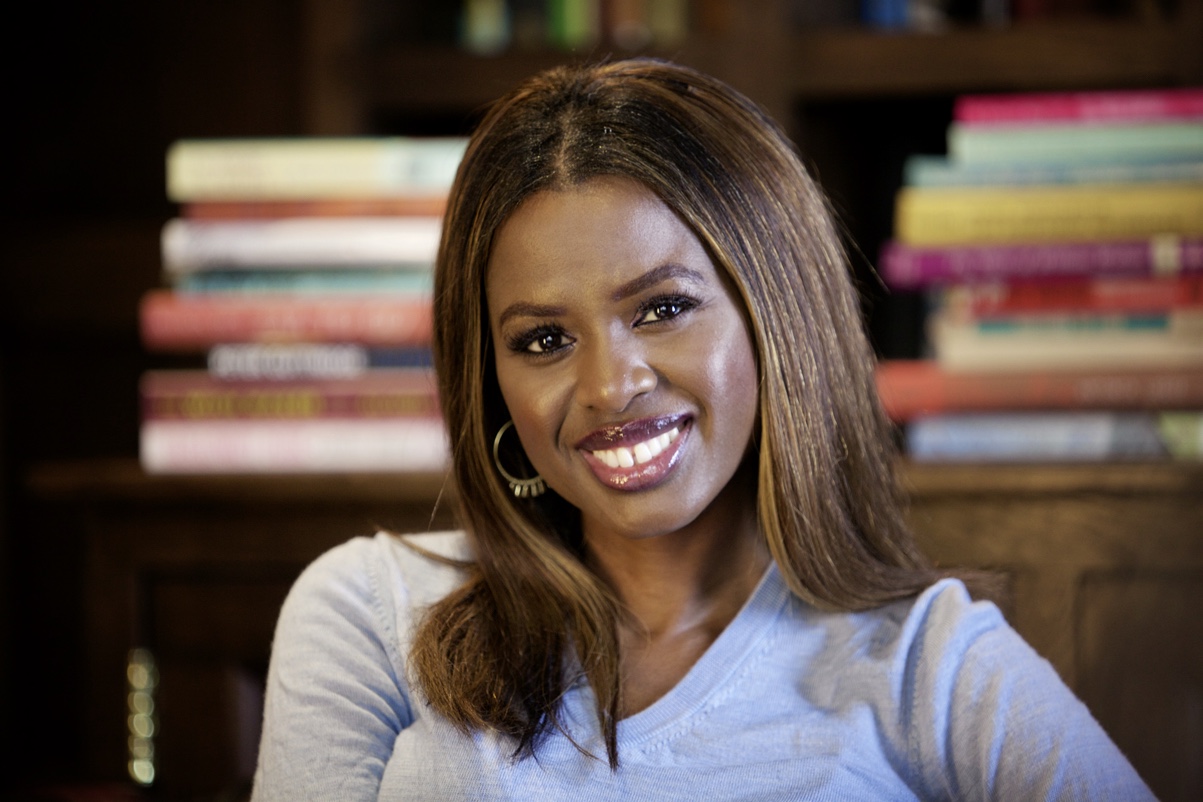

June Sarpong explains why when it comes to inclusion everyone must play their part but white people can have the maximum impact
An era-defining and unstoppable movement was unleashed this year when the Black Lives Matter protests in America became a global movement. Systemic racism is something June Sarpong, broadcaster, author and BBC director of creative diversity confronts head on in her latest book, The Power Of Privilege. Here, June reveals why she's making it her mission to educate powerful privileged white people about what they can do to bring about positive change.
Challenge opinions on racism
Opinions about the wider severity of racism will usually depend on proximity and exposure. Generally, white people in majority-white countries will have had limited exposure to racism. Black people, especially from lower socioeconomic groups, will have had direct experience of it and a more pronounced view of its severity and prevalence. However, witnessing the same incident through the same mobile-phone lens meant that the racism experienced by black Americans suddenly became a visual reality for white people. There was no escaping it. There is no justification or narrative to present the killing as accidental or in some way caused by Floyd.
The full implications of white privilege were cemented by that murder and video coming only 24 hours after the circulation of another video. This one depicted Amy Cooper, a white woman, threatening to call the police on Christian Cooper (no relation), a black birdwatcher in New York's Central Park. All he had done was ask her to put a leash on her dog, which was running free in an area of the park where that was prohibited. As she grew increasingly annoyed at his request and the fact he was videoing her response, she called the police, intimating to them that a black man was threatening her. This is the latest in a long line of white women weaponising their fear of black men. And it leads all the way back to 1955 and a 14-year-old Emmett Till, who was lynched after being accused of whistling at Carolyn Bryant.
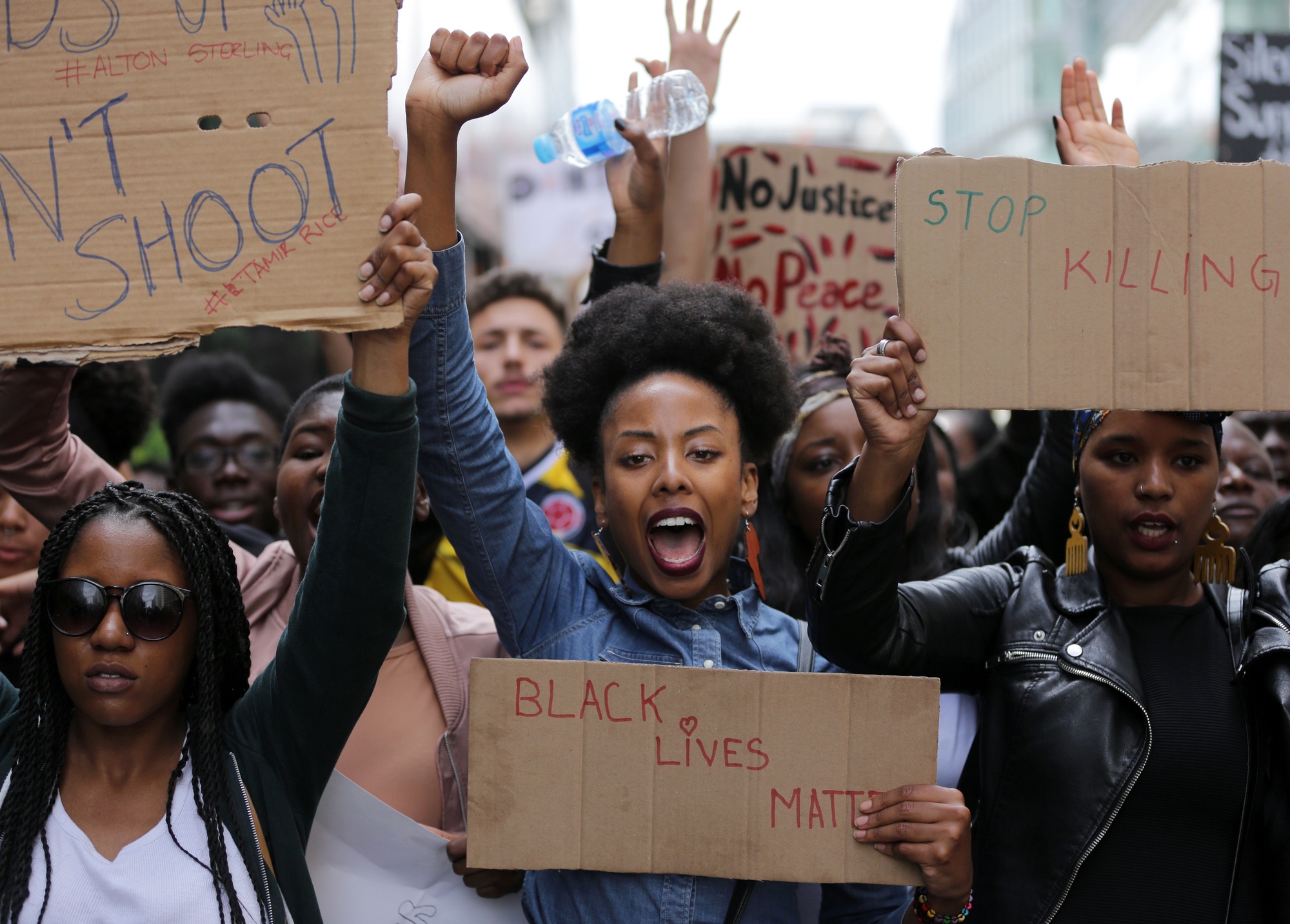
White people must play their part
As the killing of Floyd the day after the Cooper incident demonstrated, interactions between the police and black people in the States are fraught with danger. Floyd did not resist arrest, instead doing everything he would have been taught to minimize his chances of being hurt, but he still ended up dead. And this is the reality for many black people, and why the issue goes much deeper than a few bad apples. If you are black, a white person has the power to threaten your very existence.
The subsequent demonstrations and civil disturbances have forced a very public conversation about race in which white people have had to play an active part. Normally these conversations are reserved for cultural celebrations, such as Black History Month, with white people taking a more passive role. But there is now an acknowledgement, especially amongst younger generations, that racism is pervasive and the responsibility to address it lies with majority white populations.
It's no longer just a marginal, unseen issue for people of colour. The footage of both events coming so close together left no room for ambiguity about the reality of racism –and it became clear that it is a problem for white people too.
Marie Claire Newsletter
Celebrity news, beauty, fashion advice, and fascinating features, delivered straight to your inbox!
Engage don't blame
Admittedly, when we talk about ways to increase diversity, we don’t immediately think of straight white males. They are often viewed as the source of the problem more than part of the solution, with tags like ‘pale, male and stale’. Yes, much of the inequality we see has been the design of a small, elite group of mainly straight white men, whether that be in western society or former colonies.
But a shared identity doesn’t have to mean identical views or collective guilt, rather an opportunity to join a conversation. One of the main stumbling blocks towards greater inclusion is the inability to effectively engage those who are currently the most catered for in a discussion around inclusion and widening participation.
Yes, some of the most affluent members of this group have used their power to marginalise or exploit those whom they deemed as ‘other’, today and in the past. However, if we want this power and agency to be shared more widely and equitably, without conflict or casualties, then a productive dialogue needs to happen. A conversation with the focus on honesty and acceptance rather than guilt and blame.
Get out of your comfort zone
Having spent the best part of the last four years researching, writing and then speaking about the benefits of diversity for society, the one question that keeps being asked by white people, often men, is: ‘I know I am seen as the main cause of the problem, but what can I do?’
I’d been toying with the idea for some time of writing about privileged people who want to create change and an incident at a diversity dinner I hosted made me realise there was an urgent need.
I’d been asked by a major consulting firm to lead an unconscious-bias training dinner for their senior employees and high-level clients. At my table, there was a young, white professional couple whom I really bonded with. I was waxing lyrical about the importance of workplace targets and goals as the quickest means of levelling the playing field. As I continued talking about race, class and gender, I sensed the husband’s increasing discomfort with my views. This wasn’t necessarily a problem; the whole point was for us to move outside of our comfort zones.
I wanted to make sure I understood his viewpoint in order to figure out a way to include him, and people like him, in my conversations around equality. What he said struck me and has stayed with me. Even with his discomfort, he was still eager to know how he could help in creating change. He also wanted to understand if there was a place for him in the conversation: ‘How do we move from accusation to conversation? That I'm not made to feel like I’m on trial because I am white and male?’
That evening was a powerful moment of revelation for me and confirmed there was a need to write in a balanced, meaningful way about what white people in positions of power and privilege can do to bring about positive change.
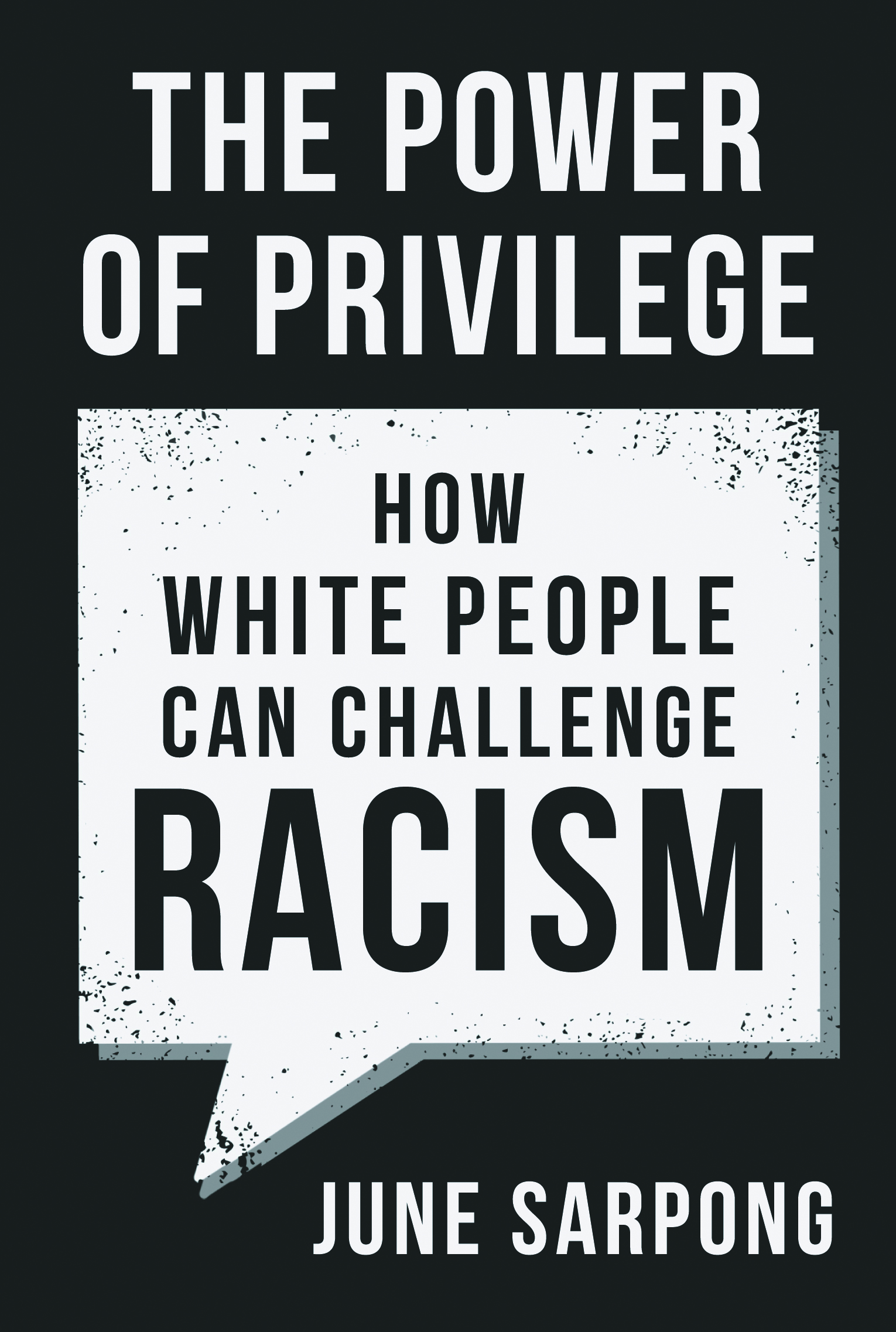
Recognise the power of privilege
The prevailing story we are all told is one of hard-fought battles for equality and an arc towards justice and greater meritocracy. Not a perfect arc but one that's improving. The experiences of people of colour, especially those who are socially disadvantaged, meant this story was long ago discarded as a fable. Others who have made some progress in a white world buy into the story but see it as aspirational rather than literal. They are careful not to challenge it to avoid the potential cost of rocking the boat.
Now, the naked brutality of the treatment of black people has caused people of colour to break their silence, tired of playing along with the official story. Many white people are also outraged and marching with people of colour, demanding a fair and meritocratic society be delivered. But white people who have excelled under the current system also have to come to terms with the reality that they are the ones who have prospered from systemic racism.
* The Power of Privilege by June Sarpong (HQ) is out now
Maria Coole is a contributing editor on Marie Claire.
Hello Marie Claire readers – you have reached your daily destination. I really hope you’re enjoying our reads and I'm very interested to know what you shared, liked and didn’t like (gah, it happens) by emailing me at: maria.coole@freelance.ti-media.com
But if you fancy finding out who you’re venting to then let me tell you I’m the one on the team that remembers the Spice Girls the first time round. I confidently predicted they’d be a one-hit wonder in the pages of Bliss magazine where I was deputy editor through the second half of the 90s. Having soundly killed any career ambitions in music journalism I’ve managed to keep myself in glow-boosting moisturisers and theatre tickets with a centuries-spanning career in journalism.
Yes, predating t’internet, when 'I’ll fax you' was grunted down a phone with a cord attached to it; when Glastonbury was still accessible by casually going under or over a flimsy fence; when gatecrashing a Foo Fighters aftershow party was easy-peasy-lemon-squeezy and tapping Dave Grohl on the shoulder was... oh sorry I like to ramble.
Originally born and bred in that there Welsh seaside town kindly given a new lease of life by Gavin & Stacey, I started out as a junior writer for the Girl Guides and eventually earned enough Brownie points to move on and have a blast as deputy editor of Bliss, New Woman and editor of People newspaper magazine. I was on the launch team of Look in 2007 - where I stuck around as deputy editor and acting editor for almost ten years - shaping a magazine and website at the forefront of body positivity, mental wellbeing and empowering features. More recently, I’ve been Closer executive editor, assistant editor at the Financial Times’s How To Spend It (yes thanks, no probs with that life skill) and now I’m making my inner fangirl’s dream come true by working on this agenda-setting brand, the one that inspired me to become a journalist when Marie Claire launched back in 1988.
I’m a theatre addict, lover of Marvel franchises, most hard cheeses, all types of trees, half-price Itsu, cats, Dr Who, cherry tomatoes, Curly-Wurly, cats, blueberries, cats, boiled eggs, cats, maxi dresses, cats, Adidas shelltops, cats and their kittens. I’ve never knowingly operated any household white goods and once served Ripples as a main course. And finally, always remember what the late great Nora Ephron said, ‘Everything is copy.’
-
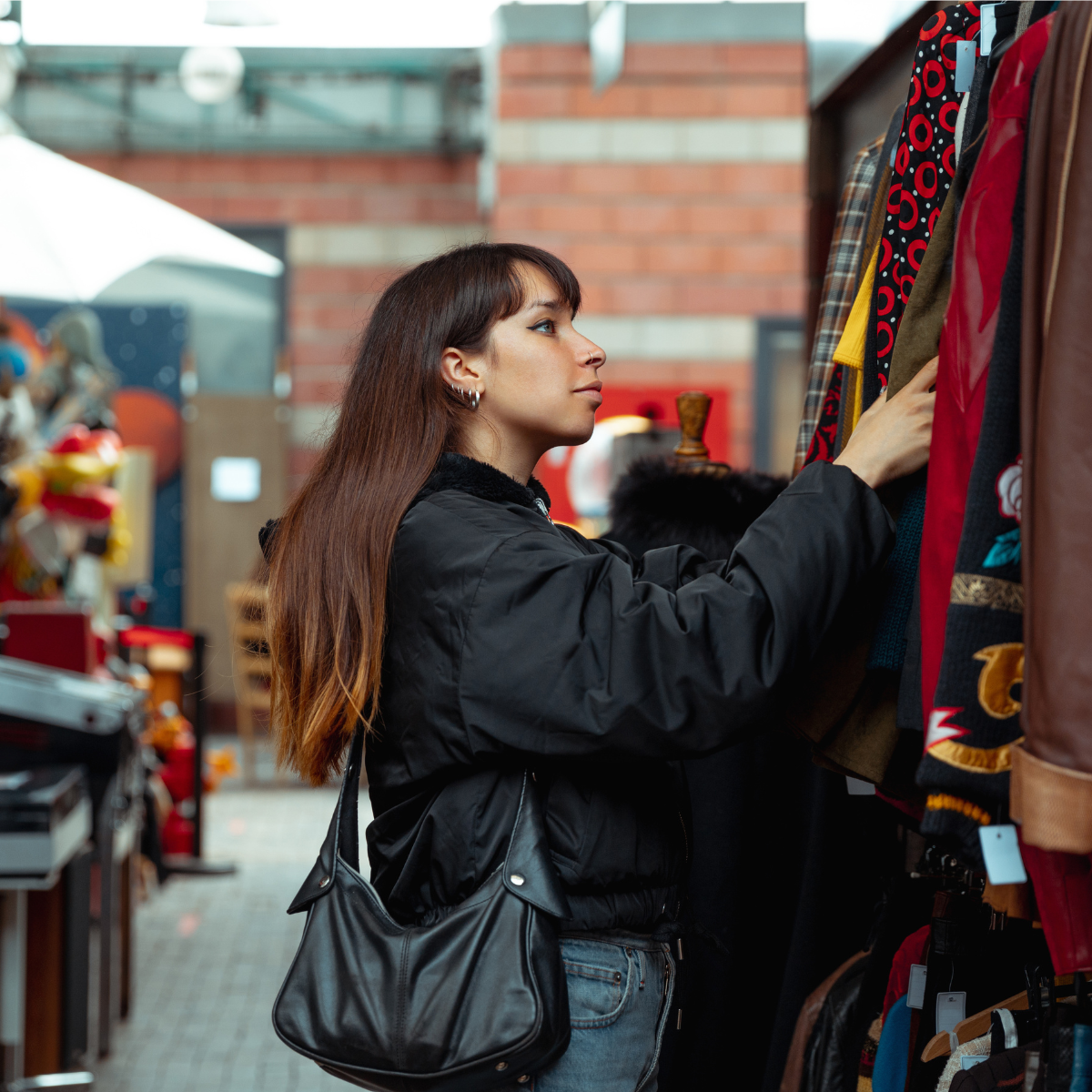 Vintage sales, flower festivals and unique brunches - 7 fun and frivolous things to do this bank holiday
Vintage sales, flower festivals and unique brunches - 7 fun and frivolous things to do this bank holidayBy Jadie Troy-Pryde
-
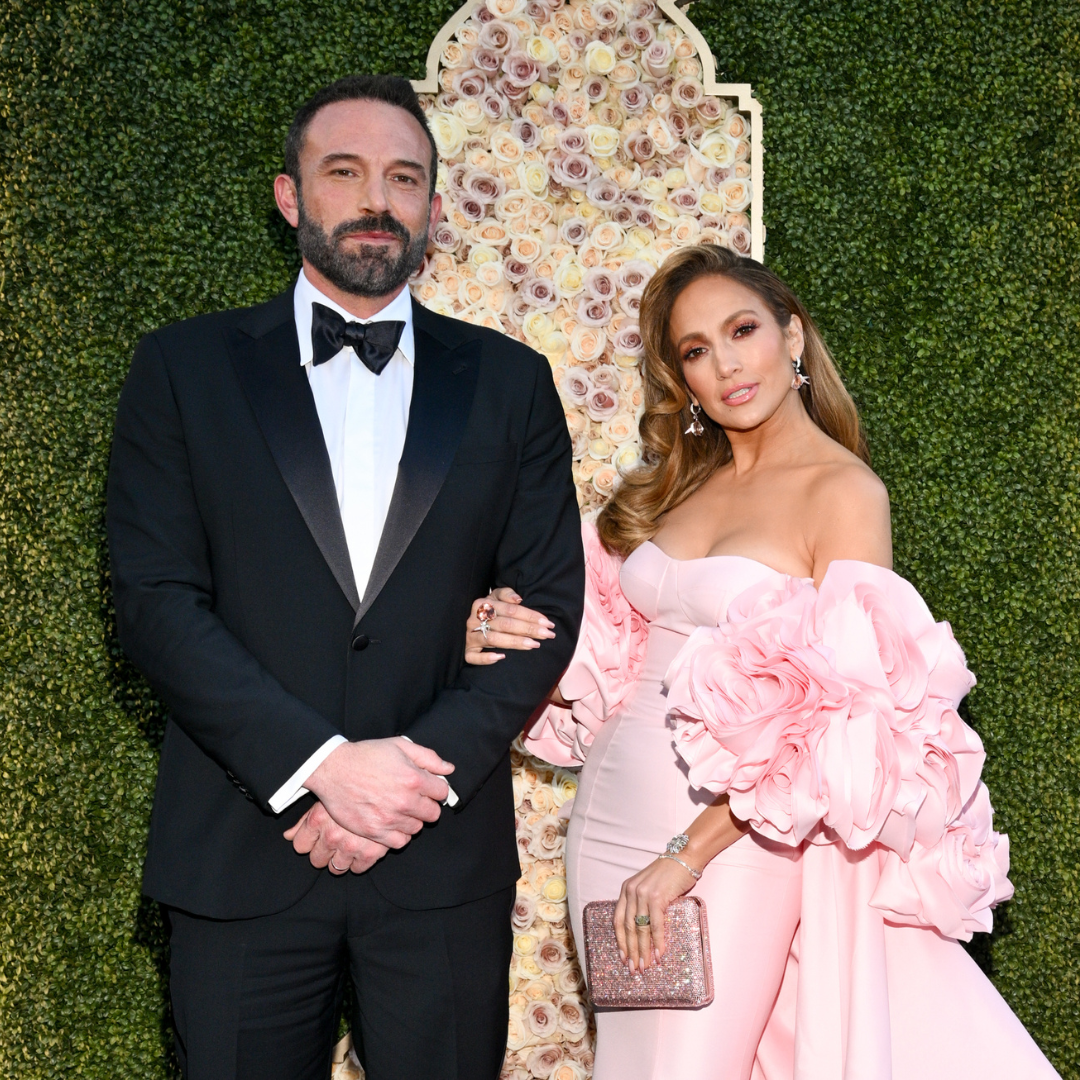 How Ben Affleck feels about dating after his divorce from Jennifer Lopez
How Ben Affleck feels about dating after his divorce from Jennifer LopezHe's taking it slow
By Iris Goldsztajn
-
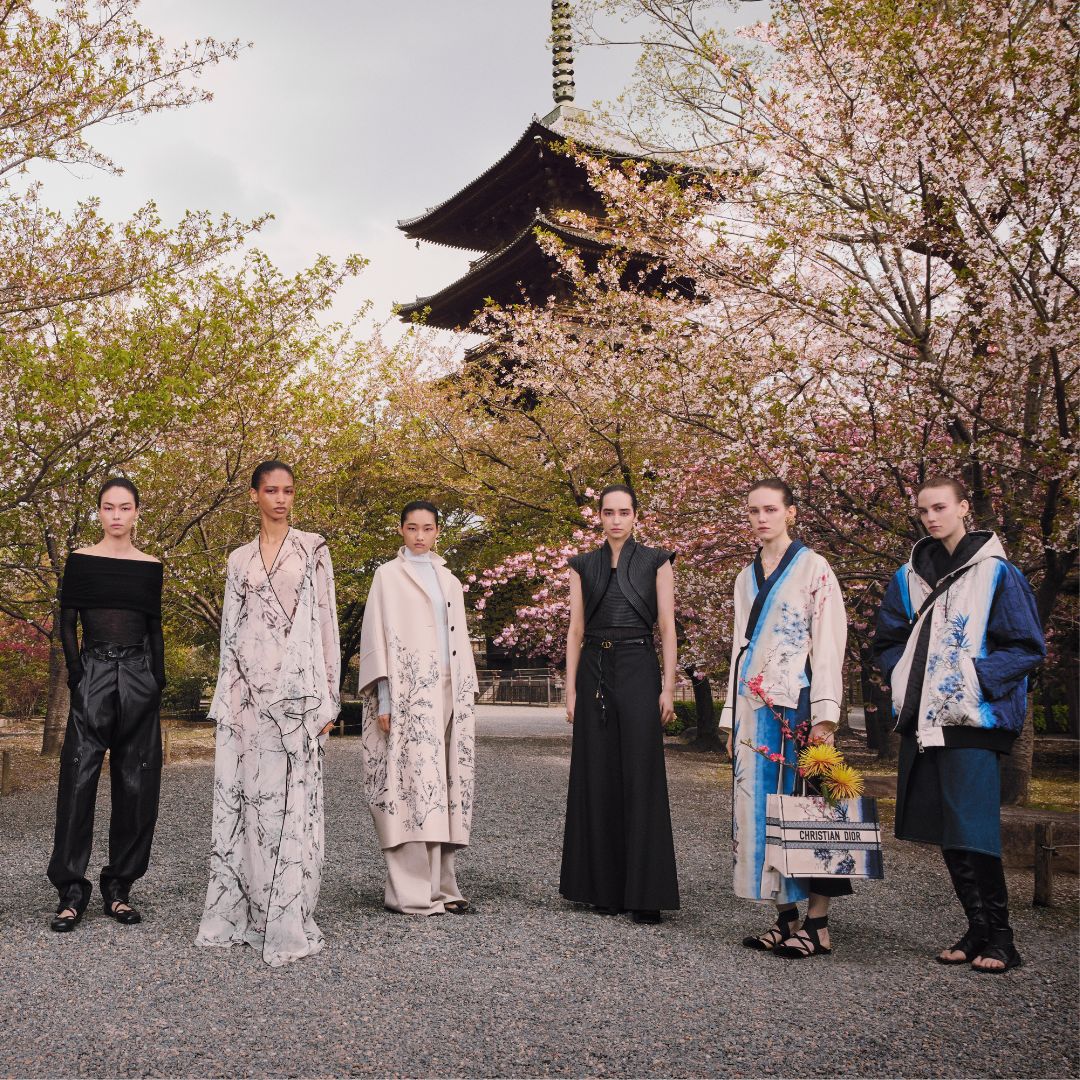 Dior travels to Kyoto for a cherry blossom-inspired fashion show
Dior travels to Kyoto for a cherry blossom-inspired fashion showHere's everything you need to know
By Clementina Jackson
-
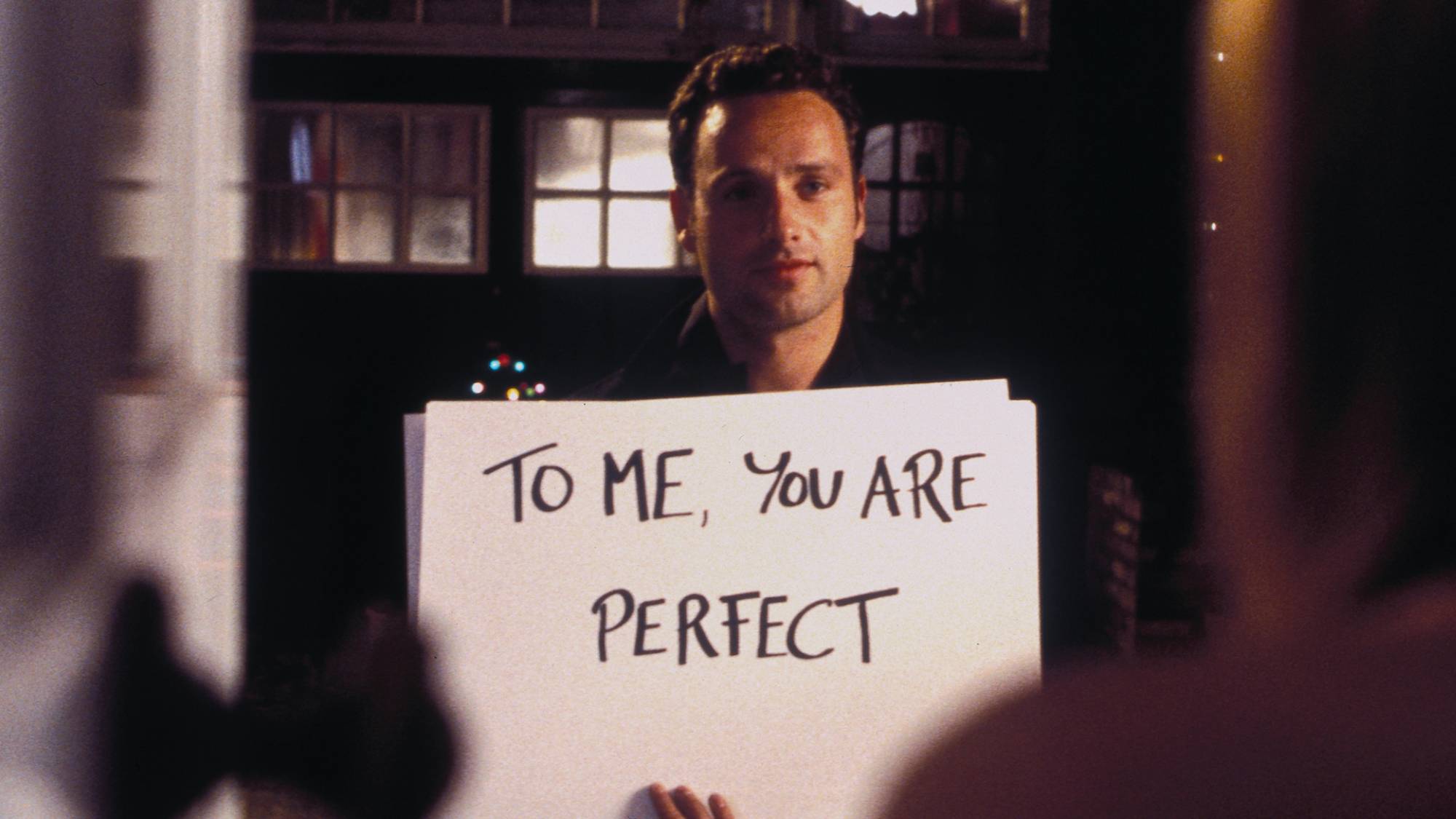 This weird Love Actually fan theory is going viral and it actually makes a lot of sense
This weird Love Actually fan theory is going viral and it actually makes a lot of senseMinds. Blown.
By Jadie Troy-Pryde
-
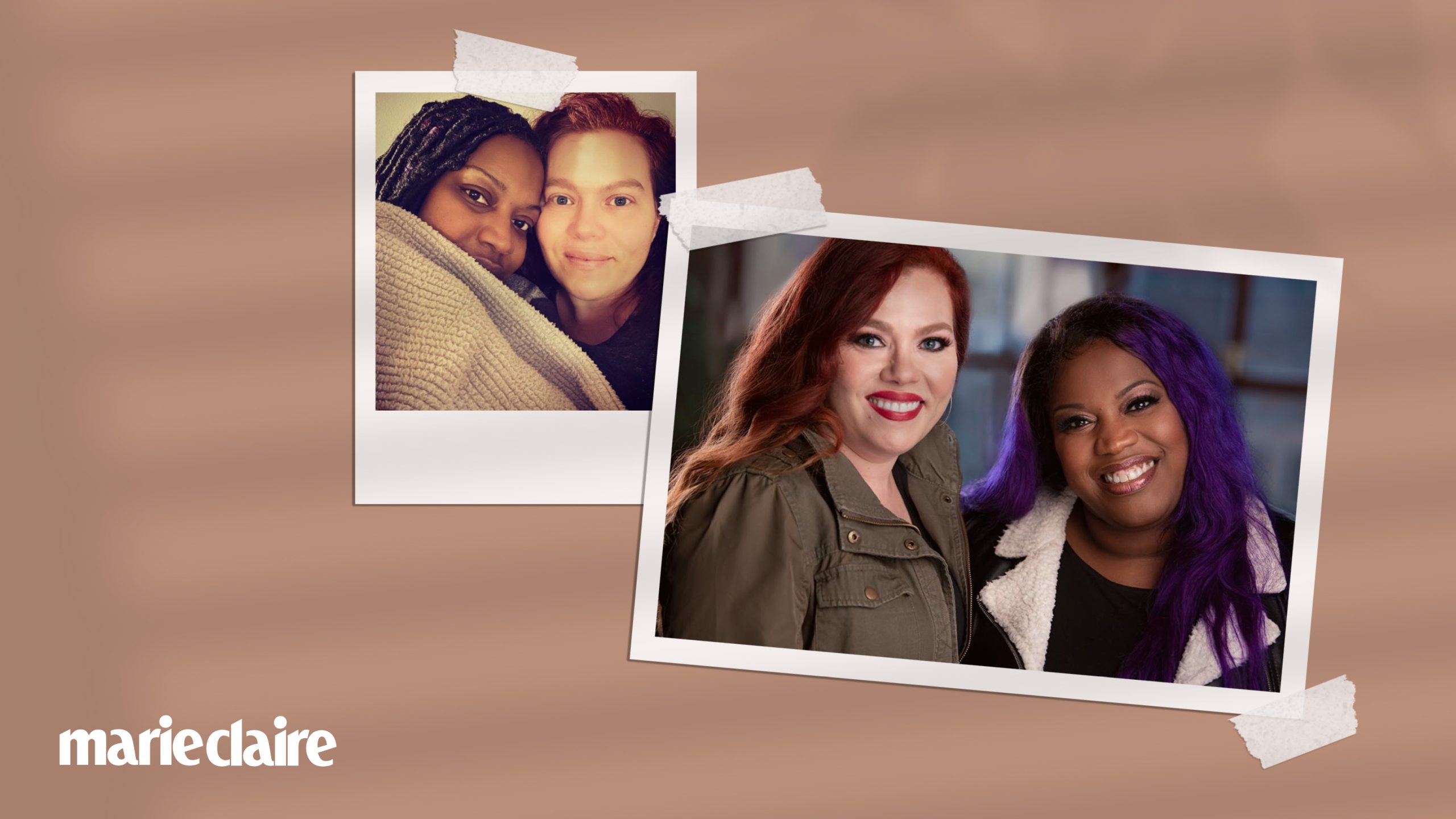 Lessons from an interracial friendship: “We intentionally make space for each of our voices”
Lessons from an interracial friendship: “We intentionally make space for each of our voices”Kimberly Jones and Gilly Segal have been best friends for over a decade, and have learnt how to support one another as their respective communities have come under attack.
By Kimberly Jones & Gilly Segal
-
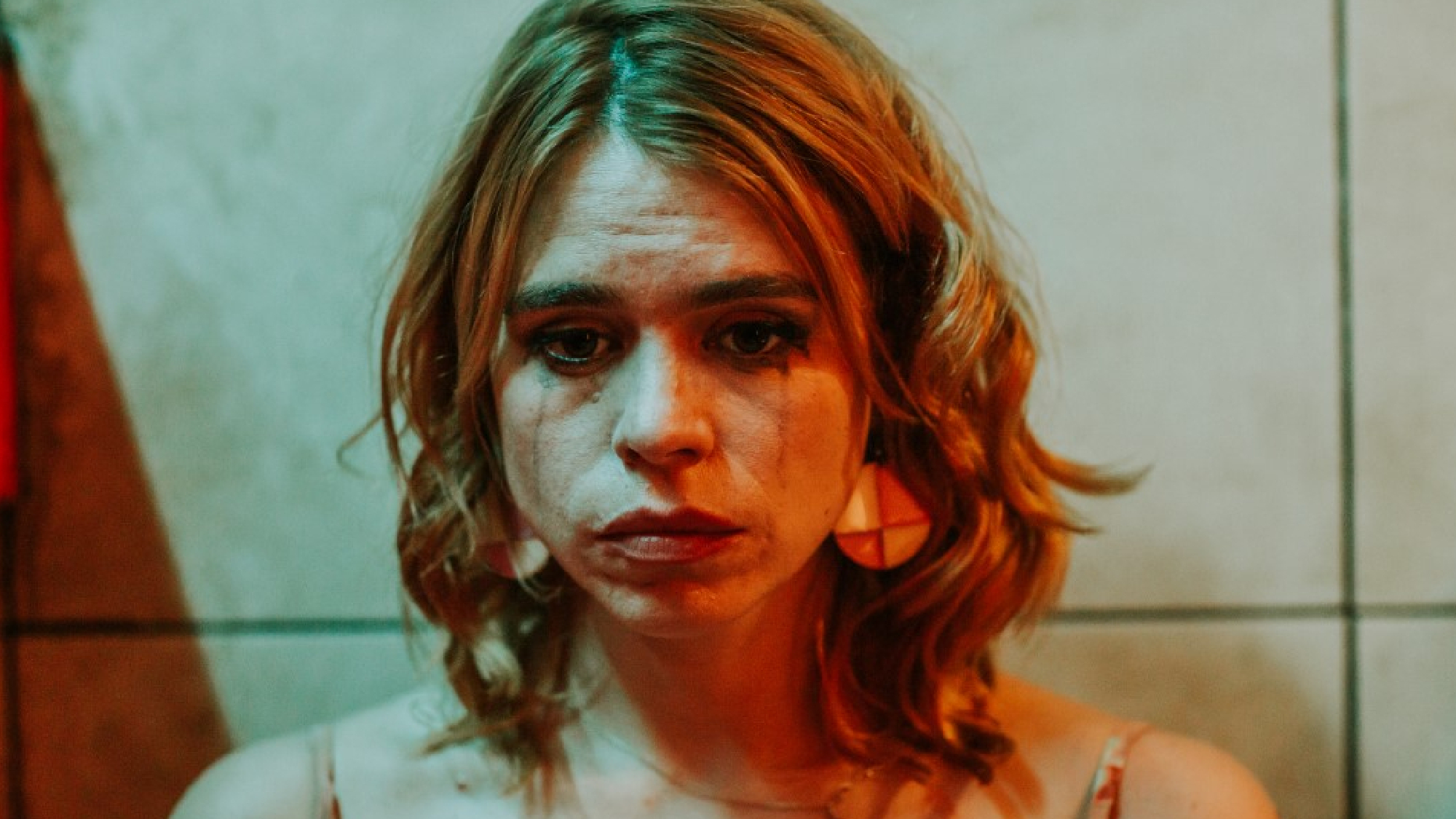 Billie Piper: "Modern love is really hard"
Billie Piper: "Modern love is really hard"As her directorial debut, Rare Beasts, hits cinema screens to rave reviews, Billie Piper shares the process behind making it - and why she was determined not to paint women as victims or wallflowers.
By Sophie Goddard
-
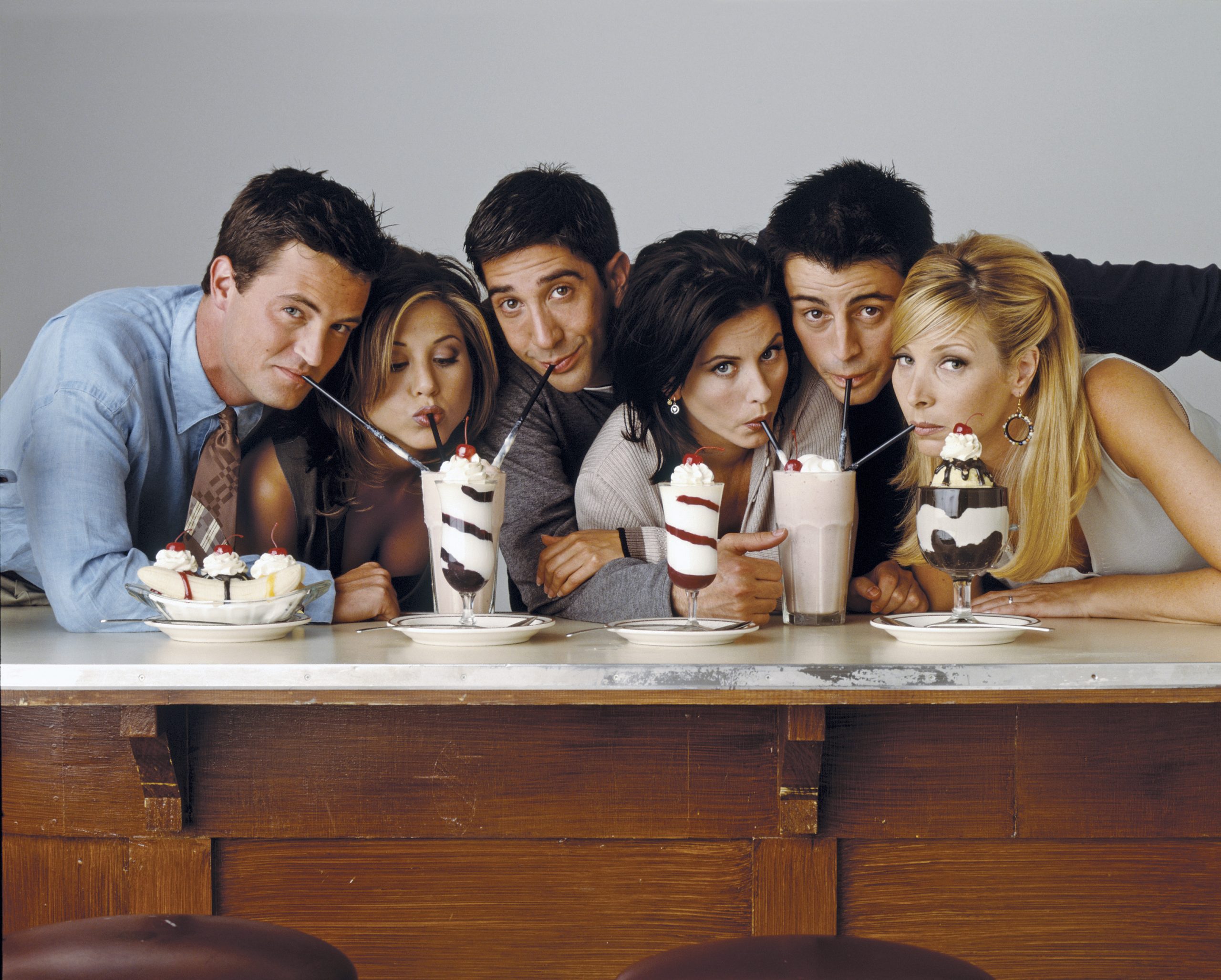 Why is everyone so obsessed with the Friends reunion?
Why is everyone so obsessed with the Friends reunion?The One Where They Get Back Together is streaming this Thursday, but why is everyone losing their minds over it?
By Sophie Goddard
-
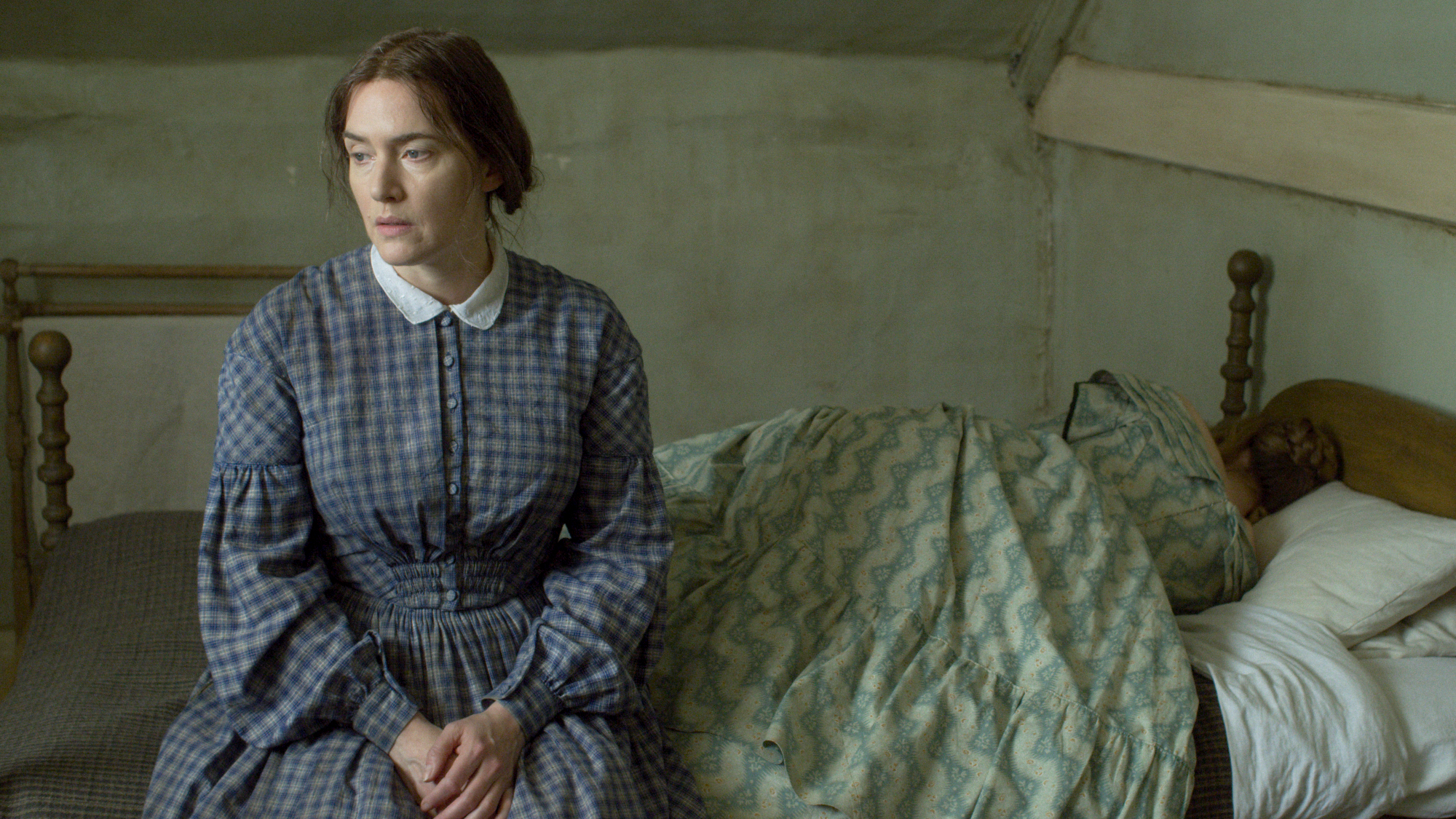 Kate Winslet: “Women know what women want”
Kate Winslet: “Women know what women want”She plays palaeontologist Mary Anning in the film everyone's talking about - here, Kate Winslet fills us in on the making of Ammonite (and yes, that sex scene...)
By Sophie Goddard
-
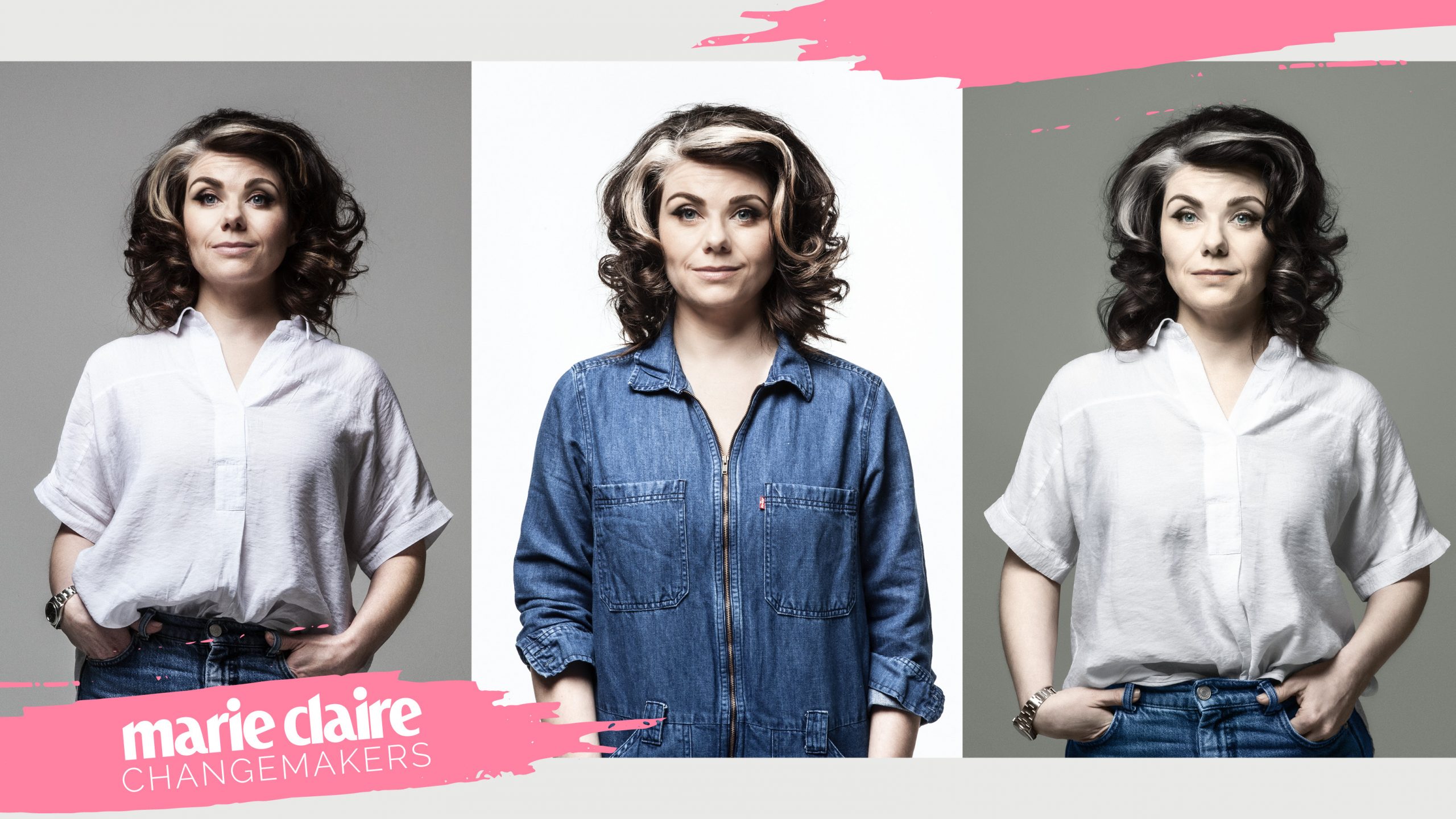 Caitlin Moran: 'The only argument you should be having in feminism is one with yourself'
Caitlin Moran: 'The only argument you should be having in feminism is one with yourself'By Jenny Proudfoot
-
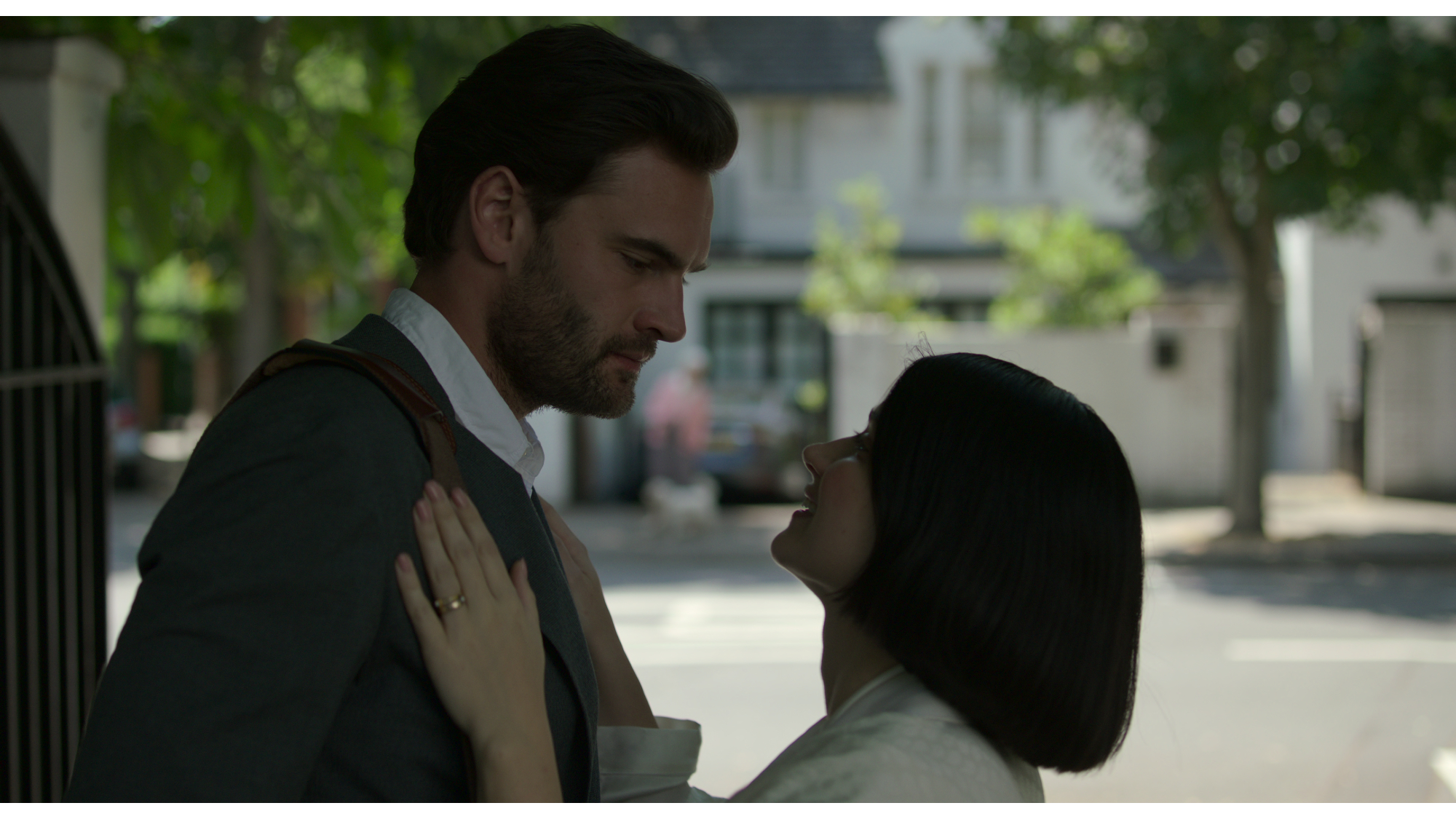 10 questions we had watching Behind Her Eyes
10 questions we had watching Behind Her EyesTrust us, you'll be just as obsessed with the new Netflix thriller starring Simona Brown, Tom Bateman and Eve Hewson
By Sophie Goddard
-
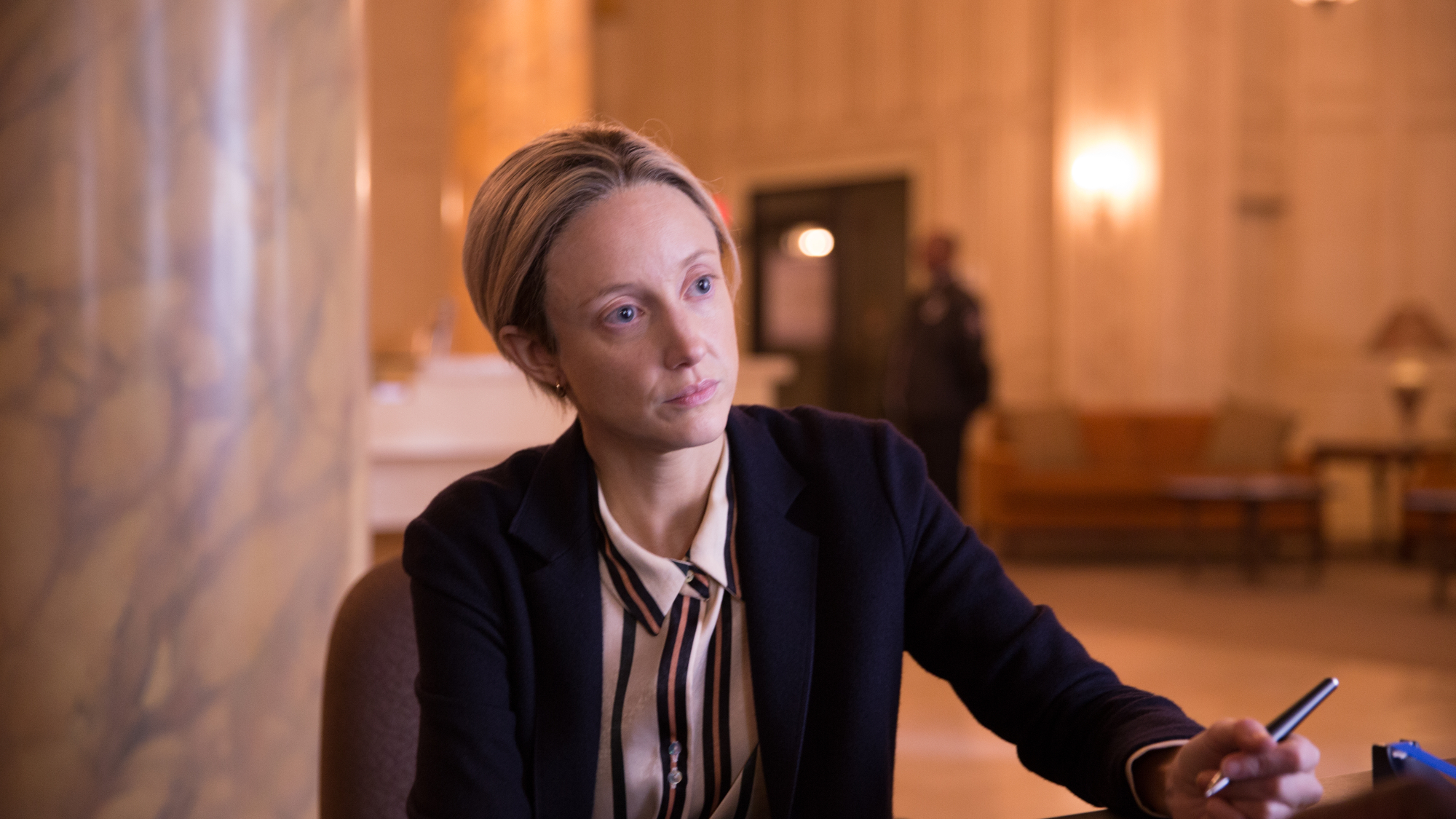 Andrea Riseborough: “There's no right way to do something differently but it's important to try"
Andrea Riseborough: “There's no right way to do something differently but it's important to try"She’s starred in some of Hollywood's biggest blockbusters and is now about to play a key member of a dangerous, cocaine-smuggling family in new crime drama ZeroZeroZero. Here, Newcastle-born actress Andrea Riseborough talks about her latest role and the landscape for women in Hollywood after #MeToo...
By Sophie Goddard